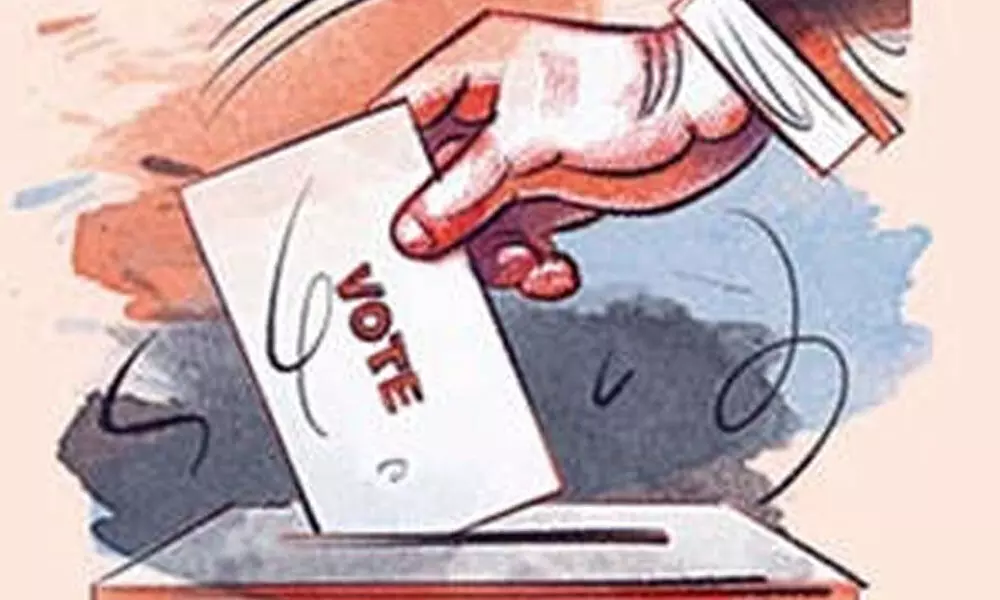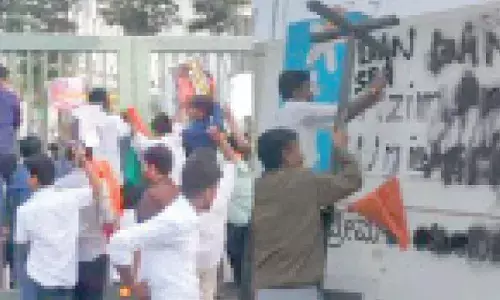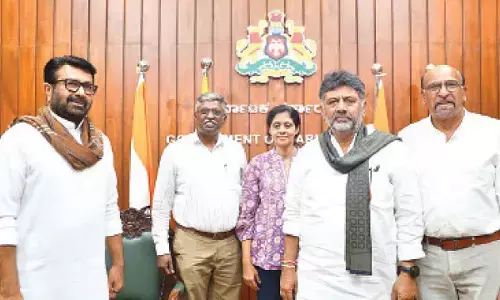Get on with key electoral reforms

Get on with key electoral reforms
The Election Laws (Amendment) Bill, 2021, which seeks to link electoral rolls with the Aadhaar ecosystem to weed out duplication, was passed in Lok Sabha on Monday amid protests by the Opposition.
The Election Laws (Amendment) Bill, 2021, which seeks to link electoral rolls with the Aadhaar ecosystem to weed out duplication, was passed in Lok Sabha on Monday amid protests by the Opposition. Introducing the Bill, Union Law Minister Kiren Rijijusaid the legislation would end bogus voting in the country and make the electoral process more credible. He introduced the Bill even as MPs from the Congress, DMK and TMC were standing in the Well of the House, shouting slogans against the government.
Opposition parties led by Congress protested against the Bill, saying it would infringe the fundamental rights of citizens. They also alleged that the Bill would violate the Supreme Court judgement on Aadhaar and demanded that the Bill be sent to a Standing Committee. Electoral reforms have been engaging the attention of the parliament, the government, the press and also the Election Commission for a long time.
The Commission has been very regularly addressing the government in the last six years on different subjects requiring reforms. Some measures were implemented in the past to remove glaring lacunae in the law. Based on the experiences in the General Elections to the 14th Lok Sabha and issues that had come up in the recent past, the Commission believes that further steps need to be taken quickly for amendment of the certain provisions of law.
The electoral reform proposals have been divided into two parts. The first part sets out certain urgent proposals for electoral reforms in areas that have not been taken up in the past by the Commission and which have arisen due to the implementation of certain laws enacted or based on certain directions given by the Supreme Court and the High Courts. In the second part, the Commission has reiterated some of the pending proposals that remain unresolved and which, in no way, are less important than the proposals in the first part.
The Commission, in 2004 itself, wrote to the Prime Minister, urging the government to give immediate consideration to these issues and, if possible, undertake necessary legislation so that the same can be made effective well before the next round of elections.
As usual, every good thing gets delayed in the country. Aadhaar linking is one of the issues, while the power to delist specific political parties remains a point to be discussed. In 1999, the Commission sent 200 parties notices as they had not contested any polls. At present, India has over 2,700 political parties, but only seven are recognised at the national level and 50 at the state-level. A recognised party has to poll 6% of valid votes in four or more states and win at least four Lok Sabha seats.
The Commission, composed of Chief Election Commissioner Sushil Chandra and Election Commissioners Rajiv Kumar and Anup Chandra Pandey, has been pushing for the reforms with the CEC writing to the ministry in May to "expedite them." ECI is pushing for at least five key electoral reforms, including making paid news an electoral offense, linking Aadhaar numbers to the electoral roll and increasing the punishment for filing a false affidavit (to two years of imprisonment), and has written to the government in this regard. There are nearly 40 proposals pending with the ministry.
What remains an irritant is the stand of the Opposition which sees a devil in the details. Let there be reforms.








